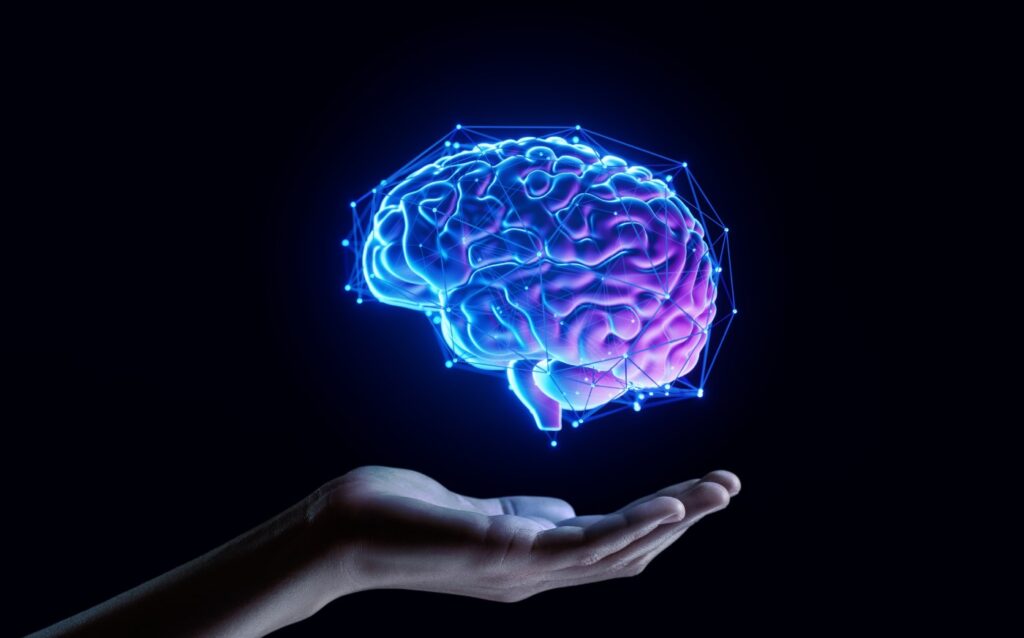ADHD or Something Else? How Psychological Assessments Differentiate Look-Alike Conditions

Understanding ADHD and Look-Alike Conditions
What Makes ADHD Different
What is ADHD? Imagine your brain as a sophisticated control center with millions of switches and circuits. In attention deficit hyperactivity disorder, some of these circuits are wired differently, affecting how your brain processes attention, impulse control, and activity levels. This isn’t a character flaw or lack of willpower. It’s a neurodevelopmental condition that stems from unique brain structure and function.
ADHD symptoms typically fall into three main categories, and you might recognize yourself in many of these experiences:
Inattention symptoms:
- Difficulty sustaining focus on tasks or activities
- Frequently losing important items (keys, phone, paperwork)
- Being easily distracted by external stimuli or internal thoughts
- Struggling to follow through on instructions or finish projects
- Avoiding tasks that require sustained mental effort
- Appearing not to listen when spoken to directly
- Making careless mistakes due to overlooking details
Hyperactivity symptoms:
- Feeling restless or fidgety, even in situations requiring stillness
- Difficulty engaging in quiet activities
- Talking excessively or interrupting conversations
- Feeling internally “revved up” and energised
- Leaving your seat when expected to remain seated
Impulsivity symptoms:
- Acting on immediate desires without pause for reflection
- Blurting out answers before questions are completed
- Difficulty waiting your turn in conversations or activities
- Making important decisions without considering consequences
- Interrupting others or intruding on conversations
Why Symptoms Overlap

You might be thinking “How do I know if it’s ADHD or something else?”. Well, here’s where things get tricky: the same symptom can have completely different root causes. So what conditions are often mistaken for ADHD? Your brain might struggle with focus due to anxiety racing your thoughts, depression draining your mental energy, or learning disorders making tasks feel impossible. It’s like having a car that won’t start. The problem could be a dead battery, empty gas tank, or faulty ignition, but the end result looks identical from the outside.
Common Disorders That Mimic ADHD Symptoms
1. Anxiety Disorders and Focus Problems
Can anxiety look like ADHD? 100%. Anxiety creates concentration difficulties that closely mirror ADHD. When your mind constantly worries about potential problems, focusing becomes nearly impossible. Racing thoughts and physical restlessness from anxiety can look identical to ADHD hyperactivity and inattention, making psychological assessments crucial for proper treatment.
2. Depression’s Impact on Attention
Can depression be confused with ADHD? Yes. Depression creates mental fog, decreased motivation, and difficulty concentrating that can easily be mistaken for ADHD inattention. The emotional numbness and energy depletion of depression affect task completion and focus in ways that require completely different treatment approaches than ADHD interventions.
3. Learning Disorders and Task Avoidance
Consider how you’d react if every book was written in a foreign language you barely understood. Learning disabilities like dyslexia or processing disorders create this experience, leading to task avoidance and procrastination that mirrors ADHD behaviors. When reading or math feels overwhelming due to underlying learning challenges, the resulting behaviors – avoiding homework, appearing inattentive, or acting out – require specialized educational support rather than ADHD treatment.
4. Sleep Disorders and Daytime Functioning
Ever notice how everything feels harder after a poor night’s sleep? Sleep problems create a domino effect on attention and behavior that closely resembles ADHD. Sleep apnea, insomnia, or other sleep disorders can cause daytime hyperactivity, inattention, and mood changes that look remarkably similar to ADHD symptoms. Children and adults with untreated sleep issues often receive incorrect ADHD diagnoses when the real culprit is their nighttime rest quality.
5. Trauma and Hypervigilance
When your nervous system believes it’s constantly under threat, how can you possibly focus on everyday tasks? Trauma responses create symptoms nearly identical to ADHD through hypervigilance that keeps your internal alarm system perpetually activated. Emotional dysregulation from trauma can appear as impulsivity, while dissociation might look like inattention. These trauma-related symptoms need trauma-informed care and conditions that mimic ADHD need to be recognized so the right care can be given: trauma-informed treatment, not ADHD medication.
Why Accurate Diagnosis Is Essential
1. Treatment Effectiveness Depends on Accuracy
Why is ADHD often misdiagnosed? Getting the wrong diagnosis means receiving treatments that don’t address your actual needs or mental health. For example, ADHD medications won’t help anxiety-based focus problems, and ADHD behavioral strategies won’t treat underlying depression. That’s why it’s important to consider conditions that can produce ADHD-like symptoms. An accurate diagnosis ensures you invest your time and energy in approaches that actually work for your specific situation.
2. Avoiding Wasted Time and Resources
How many years have you spent wondering why nothing seems to work? Misdiagnosis can lead to this exact frustration, creating cycles of ineffective treatments, mounting disappointment, and wasted resources. When you’re treating the wrong condition, you might blame yourself for “not trying hard enough” when the real issue is that you’re using tools designed for a completely different problem.
3. Building Self-Understanding
Have you ever had that lightbulb moment when everything suddenly makes sense? Accurate diagnosis helps explain why certain situations feel challenging and validates struggles you might have minimized or blamed on personal failings. This understanding becomes the foundation for developing effective coping strategies and self-advocacy skills.
The Role of Psychological Assessment in ADHD
1. Comprehensive Evaluation Process
What happens during an ADHD psychological assessment? Psychological assessments for attention deficit hyperactivity disorder involve multiple components that paint a complete picture of your cognitive functioning and mental health. These evaluations go far beyond simple questionnaires, incorporating cognitive tests, behavioral observations, developmental history, and input from multiple sources to ensure accuracy.
2. Professional Expertise Matters
How do psychologists test for ADHD? Qualified professionals understand the subtle differences between conditions that share similar symptoms. They’re trained to recognize patterns, ask the right questions, and interpret test results within the context of your unique life circumstances to accurately diagnose ADHD among other conditions.
How Assessments Differentiate ADHD From Other Conditions
1. Developmental History Analysis
What if the key to understanding your present lies hidden in your past? ADHD symptoms must be present from childhood, so psychological assessments examine your developmental history thoroughly. For example, professionals look for evidence of attention or hyperactivity challenges in early school years, considering how symptoms have evolved over time rather than appearing suddenly in response to life stressors.
2. Cognitive Testing Patterns
Just as fingerprints are unique to each person, different conditions create distinct patterns in cognitive testing. Attention deficit hyperactivity disorder typically shows particular signatures in working memory, processing speed, and attention measures that differ from those seen in anxiety, depression, or learning disorders. These objective measures provide diagnostic clues that symptoms alone might miss.
3. Symptom Context and Triggers
How does a psychological assessment diagnose ADHD? Assessments examine when and where symptoms occur. ADHD symptoms appear across multiple settings and situations, while anxiety-related focus problems might be more situational. Understanding symptom patterns helps professionals identify whether attention difficulties stem from ADHD or other causes.
4. Response to Interventions
How you’ve responded to previous interventions provides diagnostic clues. If organizational strategies haven’t helped despite consistent implementation, this might suggest ADHD rather than a learning disorder. Your history of what’s worked and what hasn’t guides professionals toward accurate diagnosis.
What to Expect During an ADHD Assessment
1. Initial Consultation and History
How do I know if it’s ADHD or something else? Your psychological assessment begins with detailed discussions about your current challenges, developmental history, and previous experiences with treatment. From there, mental health professionals gather information about family history, medical background, and how symptoms impact your daily functioning across different areas of life.
2. Testing Components
Comprehensive ADHD assessments typically include cognitive testing, attention measures, and behavioral rating scales completed by you and others who know you well. These tests provide objective data about your cognitive strengths and challenges, helping professionals understand your unique neurological profile.
3. Collaborative Information Gathering
Effective psychological assessments involve input from multiple sources – family members, teachers, or supervisors who observe your functioning in different environments. This holistic approach ensures mental health professionals understand how symptoms manifest across various settings and relationships.
4. What Tests Are Used in an ADHD Evaluation?
Attention deficit hyperactivity disorder evaluations typically include several standardized tests and assessment tools designed to measure different aspects of attention, executive functioning, and behavior, helping professionals determine whether an individual meets the formal diagnostic criteria for ADHD.
- Continuous Performance Tests (CPT) – Computer-based tests that measure sustained attention and response consistency over time
- IQ and cognitive ability tests – Such as the WAIS-IV or WISC-V to assess overall intellectual functioning and identify cognitive strengths and weaknesses
- Memory and executive function tests – Including working memory tasks, planning abilities, and cognitive flexibility measures
- Behavioral rating scales – Like the Conners’ Rating Scales completed by you, family members, or teachers
- Academic achievement tests – To identify any learning difficulties that might be contributing to attention problems
- Personality and emotional assessments – Such as the MMPI-2 or Beck inventories to screen for anxiety, depression, or other mental health conditions
- Neuropsychological tests – Measuring processing speed, attention switching, and inhibitory control
- Structured clinical interviews – Like the ADHD Clinical Diagnostic Scale to gather detailed symptom history
The specific combination of tests varies based on your age, concerns, and the clinician’s assessment approach, but this comprehensive battery helps create an accurate diagnostic picture.
Moving Forward After an ADHD Diagnosis
1. Treatment Planning
What happens when you finally have the right roadmap for your journey? An accurate ADHD diagnosis opens doors to evidence-based ADHD treatments tailored to your specific needs. This might include medication, behavioral strategies, organizational systems, or environmental modifications. Your treatment plan becomes a personalized guide for managing symptoms and building on your unique strengths.
2. Self-Advocacy and Understanding
How empowering would it feel to finally understand why your brain works the way it does? Understanding your ADHD diagnosis gives you the language and knowledge to advocate for necessary accommodations and support. Whether in school, work, or relationships, knowing your neurological differences helps you communicate your needs effectively and seek appropriate resources with confidence.
3. Building on Strengths
It may not seem like it but ADHD comes with unique strengths – creativity that sees solutions others miss, hyperfocus abilities that produce extraordinary results, innovative thinking that breaks new ground, and high energy that can fuel remarkable achievements. Your diagnosis helps you understand not just your challenges, but also how to leverage your neurological differences as powerful advantages in your personal and professional life.
Getting the right diagnosis is like finding the missing piece that makes your whole puzzle come together.
Take the Next Step Toward Understanding Your Brain

Are you tired of wondering whether your struggles stem from ADHD or something else entirely? You don’t have to navigate this journey alone or continue guessing about what’s really going on in your mind.
Every brain tells a different story, and yours deserves to be understood with the care and expertise it needs. Whether you’re dealing with focus challenges, restlessness, emotional regulation difficulties, or simply feeling like nothing you’ve tried actually works, a comprehensive psychological assessment can provide the clarity you’ve been searching for.
So what disorders are often mistaken for ADHD? The difference between struggling in the dark and thriving with understanding often comes down to one crucial step: getting the right evaluation from mental health professionals who know how to distinguish between conditions that look remarkably similar on the surface.
Schedule your free consultation today and take the first step toward understanding your brain, validating your experiences, and receiving tools that can transform your daily life. Because when you know what you’re working with, you can finally stop fighting against yourself and start working with your brain’s incredible potential.

